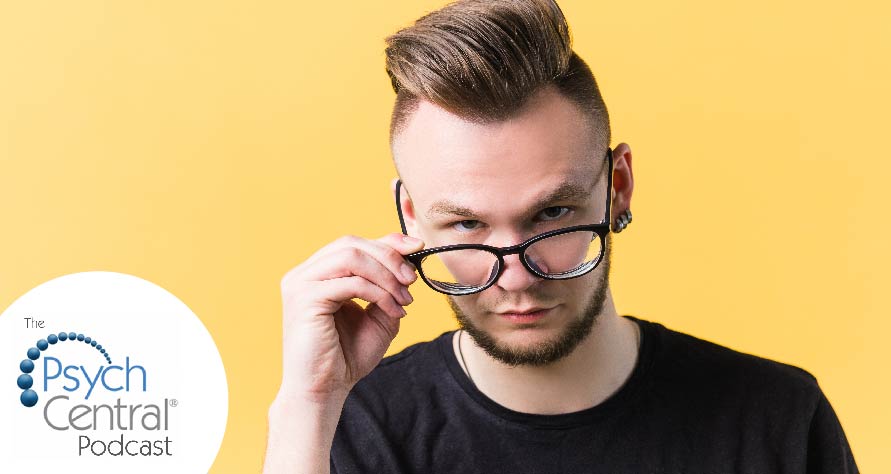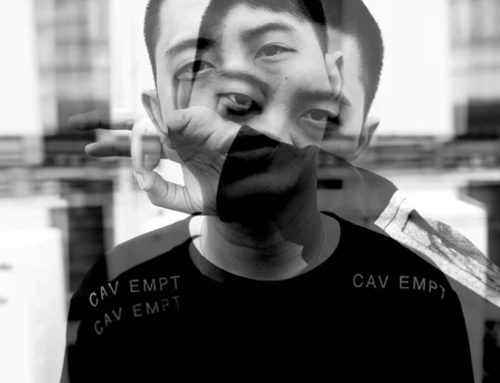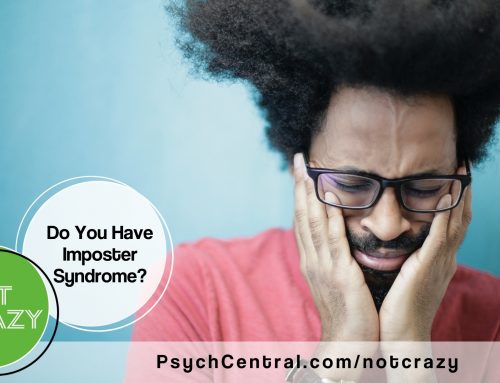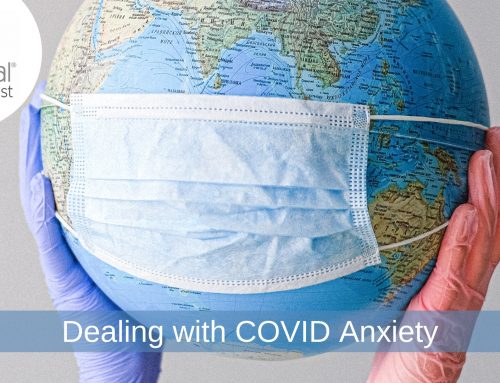Are you a victim of stigma? Do you feel like you have less value in society because of your job, income, ethnicity or your mental health diagnosis? In today’s Psych Central Podcast, Gabe talks with anthropologists Alex Brewis and Amber Wutich about the negative impacts of stigma in society. They discuss the factors that drive stigma and why humans are so quick to stigmatize others (and themselves). Click on the player below to listen now!
SUBSCRIBE & REVIEW
Guest information for ‘Mental Health Stigma’ Podcast Episode

Alexandra Brewis (Slade) is a President’s Professor and Founding Director of the Center for Global Health at ASU.
Trained as an anthropologist, Alex’s scholarship is currently focused on how stigma, poverty, gender and other forms of social and economic exclusion and marginalization shape our health and human biology. With a long career of leading mixed-method community-based field research at multiple sites across the globe, much of her current research brings together large and diverse teams, addressing such challenges as water insecurity, improving development project design and monitoring, and properly tailored anti-obesity efforts.
At ASU, Brewis Slade teaches global health and anthropology. She is an American Association for the Advancement of Science (AAAS) fellow and currently serves as president of the Human Biology Association. As an administrator at ASU, she founded the Center for Global Health in 2006 and served as Director of the School of Human Evolution and Social Change (2010-2017) and Associate Vice President for Social Sciences (2014-2017). She currently serves as President of the Human Biology Association.
Professor Brewis received a doctorate in anthropology from University of Arizona (1992) and was an Andrew W Mellon Foundation postdoctoral fellow in demography at Brown University. Before joining ASU in 2005, she taught at University of Auckland and University of Georgia.
Amber Wutich is a President’s Professor of Anthropology and Director of the Center for Global Health at Arizona State University. Her two decades of community-based fieldwork are concerned with how inequitable and unjust resource institutions impact people’s well-being, especially under conditions of poverty. An expert on water insecurity and mental health, she directs the Global Ethnohydrology Study, a cross-cultural study of water knowledge and management. Wutich maintains longstanding ties in her field sites in Paraguay and Bolivia, and manages a strategic alliance between la Universidad Católica–Itapúa (Paraguay) and ASU. An ethnographer and methodologist with over 100 peer-reviewed publications, Wutich edits the journal Field Methods and coauthored Analyzing Qualitative Data: Systematic Approaches (2016, SAGE). Her teaching has been recognized with awards such as Carnegie CASE Arizona Professor of the Year. Wutich has raised over $34 million in research funds, as part of collaborative research teams, from the National Science Foundation, USDA, and other funders. Wutich’s latest book, coauthored with Dr. Alexandra Brewis, is Lazy, Crazy, and Disgusting: Stigma and the Undoing of Global Health (2019, Johns Hopkins University Press).
Computer Generated Transcript for ‘Mental Health Stigma’ Episode
Editor’s Note: Please be mindful that this transcript has been computer generated and therefore may contain inaccuracies and grammar errors. Thank you.
Announcer: You’re listening to the Psych Central Podcast, where guest experts in the field of psychology and mental health share thought-provoking information using plain, everyday language. Here’s your host, Gabe Howard.
Gabe Howard: Hello, everybody, and welcome to this week’s episode of the Psych Central Podcast. Calling into the show today we have Alex Brewis and Amber Wutich, both anthropologists and President’s Professors at Arizona State University where Alex founded, and Amber now directs the Center for Global Health. Their most recent book together is Lazy, Crazy, and Disgusting: Stigma and the Undoing of Global Health. Alex and Amber, welcome to the show.
Alexandra Brewis, Ph.D.: Thank you.
Amber Wutich, Ph.D.: Thank you.
Gabe Howard: Well, I am really excited to be here because your work focuses on three issues of global health efforts, sanitation (or “disgusting”), obesity (which is “lazy”) and my personal favorite mental illness, (which is “crazy”) and trying to tie those things together so well. It’s difficult, right? But there’s stigma everywhere. And mental illness is just like any other aspect of health when it comes to being stigmatized in this manner.
Amber Wutich, Ph.D.: It is, and mental health is one of the stigmatizing phenomenon that we understand best. And so it really helps us think about other problems that are less well understood.
Gabe Howard: One of the things that’s become fascinating to me since I started doing this show and started working in patient advocacy is when I first got started, I thought that only hard stop only mental illness was stigmatized, that if you had any other illness or condition or a malady, you were treated with caring and respect. And nobody was judgmental. And that the only reason people were mean to me because of my bipolar diagnosis is because people didn’t like the mentally ill. And as I started to get more and more involved and meeting great people like the two of you, I realized that. Oh, my. It seems like any health condition is stigmatized.
Alexandra Brewis, Ph.D.: Yes. So we went through a lot of different aspects of stigma. But what seems to be the case is that conditions that are chronic and don’t have an easy cure tend to be those that are a focus of stigma. Because those labels can attach and kind of stay attached. And part of the stigma is the disease itself isn’t easily and completely treatable in the way that, you know, for example, a cold is self limiting. To having a cold is not going to be nearly as stigmatized as having leprosy or other conditions that have kind of crept in as becoming very stigmatized over time. Often it’s conditions that are associated with some fear and often that comes from not knowing exactly what the causes are, exactly how to fix it. Those tend to be the conditions that become stigmatized.
Gabe Howard: When we’re talking about stigma, let’s define the word. What exactly is stigma?
Alexandra Brewis, Ph.D.: Well, stigma in relation to health is when the condition that you have comes to define your identity in a negative way because of the judgments that are placed on that. And the thing that’s particular about stigma is it’s also then used as a way to push people down and out, to marginalize them, to deny them. So stigma is the disease, plus the negative judgment, plus the social rejection that comes from that.
Gabe Howard: In many ways, that just sounds a lot like discrimination. How does stigma differ from discrimination?
Alexandra Brewis, Ph.D.: So one way that stigma becomes manifest is as discrimination. So discrimination, is one type of stigma, a stigma where people act on those negative judgments to treat someone worse than they would otherwise. Whether it’s denying them employment, denying them with health care. But the difference is that stigma can take many forms. So while discrimination is essentially an enacted stigma, people can feel stigma and be affected by it without someone overtly acting on a negative judgment.
Gabe Howard: I think that we can all agree that whether it’s stigma or discrimination, it’s really treating people less than they are. It’s looking at them and deciding, hey, you’re not as good as other people. Is that a fair sort of analogy or assessment of stigma?
Alexandra Brewis, Ph.D.: Yes, it’s a process of removing people’s humanity, of a process of devaluing them as social beings. So that’s exactly what it is.
Gabe Howard: Obviously, when we’re talking about health issues, it’s hard enough to be sick, right like that in and of itself is difficult and being stigmatized, that in and of itself is difficult. And when you put the two together, this just is problematic. And that kind of leads me to my next question. How does this stigma undermine mental health treatment?
Amber Wutich, Ph.D.: There are so many ways that stigma undermines mental health treatment. One important thing to understand is that stigma can actually cause mental ill health. So people who are repeatedly mistreated or pushed out or down in society can develop anxiety. They can develop depression. So that’s right off the bat. In addition to that, for many people, the experience of being stigmatized by a mental health care provider is actually worse than dealing with the symptoms of mental health. So they would rather continue untreated than actually seeking out care from a provider. Beyond that, we know that stigma depresses investment in mental health research and treatment. So the quality of care available to people is less because of stigma. We know that it can undermine the efficacy of treatment. So, people may not receive care that’s as good as they might if they didn’t have a stigmatized condition. And then a really important thing for people is that if they have a stigmatized mental health condition, they might receive less social support from people around them. And that can really impede their improvement.
Gabe Howard: One of the things that’s fascinating to me about being a mental health advocate is the idea that it only happens to a certain type of person. You had a bad upbringing. Your parents were bad. A lot of stuff visits. Your mother didn’t love you enough or there’s just so much misinformation that floats around. But a lot of people believe these things are true. Does the amount of stigma of mental health conditions contribute to people believing some of these far fetched myths about mental illness and mental health issues?
Alexandra Brewis, Ph.D.: So I think it’s almost the inverse. I think that people’s beliefs about these types of causes of illness that tend to drive stigma. So if people believe that diseases are because the family fails or the person fails, they’re more likely to stigmatize that condition. So a good example of that that we see now is rising stigma against obesity. Is that when people believe that people gain a lot of weight because of moral failings, like, you know, for example, overweight children’s parents are poor parents, then that actually tends to elevate and give them more stigma towards the condition.
Amber Wutich, Ph.D.: But an essential part of stigmatization is othering. And it’s a way of making a distinction between myself and other people who have this condition. Right? And so this idea that the source of the stigmatized condition is different, is something that not everyone experiences, is part of this othering process as well.
Gabe Howard: One of the things that was fascinating to me in your book, Lazy, Crazy, and Disgusting, is about how health professionals might unwittingly create additional stigma through their efforts to help people. Can you give us an example and talk about that for a moment? Because I think that many people only see health professionals as good and helpful. It’s interesting that they can have any negative consequence in the way that they’re working. So I just found that utterly fascinating.
Alexandra Brewis, Ph.D.: A good example we have in our book of that is we have health professionals who on the whole, are just really motivated by the desire to do good in their job. Now, we don’t want to get the impression that the health profession is full of people who are actively stigmatizing purposefully.
Gabe Howard: Of course not, it’s like an unintended consequence, right?
Alexandra Brewis, Ph.D.: Yes. So in the book, we go through the case of sanitation interventions that actually use stigma as a way to trigger behavior change. So by making certain sanitation behaviors like outdoor defecation disgusting and stigmatized, they’re working hard to push people to choice and patient behavior in ways that meet public health goals, right? Which is better sanitation, better health, less infectious disease. So the goal itself is good. But in doing that, what it seems to be doing that we see as anthropologists is that on the ground, they actually are also creating new pockets of stigma that can be very damaging for the people that they focus on with, you know, when it comes to sanitation and dimensions of the people that can’t afford to build toilets, can’t afford to buy soap, and the other things now that they’re expected to have as a result of the intervention. So I think that’s one really good example of how the very best intentions can derail. If people don’t understand how stigma really works on the ground.
Amber Wutich, Ph.D.: And thinking about mental health specifically, I do think it’s important to point to mental health care professionals as one of the groups of care providers that really sincerely understands how damaging stigma can be and makes an enormous effort to destigmatize care. But there are certain variants of mental health treatment where we see the persistent negative impacts of stigma. And one good example is an opiate treatment. So for people who have opiate addiction, we know that there is often an inordinate emphasis placed on their own efforts. And if they relapse quite often, they are believed to stigmatize as a result, not just by their social networks, but also even by their care providers. And we know that that form of treatment is not consistent with the best outcomes for opiate treatment. And this is so much the case that sometimes people with opiate addiction are not counseled to consider medication. They’re just told that they need to make more of an effort in certain treatment programs. And so I think that’s a really good example of the way that stigma can be damaging in mental health treatment.
Alexandra Brewis, Ph.D.: And another example that’s quite different is the observation that mental health treatment professionals are often stigmatized within the profession because they are seen as working with patients that are less desirable, that are less easy to treat. So you see this with a lot of clinicians that choose to work with stigmatized conditions is that they themselves become devalued within the profession.
Gabe Howard: We’re going to step away for a minute and then we’ll be right back.
Sponsor Message: This episode is sponsored by BetterHelp.com. Secure, convenient, and affordable online counseling. Our counselors are licensed, accredited professionals. Anything you share is confidential. Schedule secure video or phone sessions, plus chat and text with your therapist whenever you feel it’s needed. A month of online therapy often costs less than a single traditional face to face session. Go to BetterHelp.com/PsychCentral and experience seven days of free therapy to see if online counseling is right for you. BetterHelp.com/PsychCentral.
Gabe Howard: And we’re back discussing mental health stigma with Professors Alex Brewis and Amber Wutich. This is slightly off topic. But to your point, one of the tropes that you hear about often is that mental health professionals are just as crazy as their patients. They got into it because they wanted to diagnose themselves or they got into it because they wanted to diagnose a family member, whereas this doesn’t exist elsewhere. An oncologist isn’t seen as somebody who has cancer or knows somebody with cancer. They’re just somebody who went into a specialty for any number of reasons. Is this something that you’re seeing in your work as well, that just all mental health professionals are stigmatized?
Amber Wutich, Ph.D.: That isn’t something we specifically investigated in our own work, although we do see in the literature indications that the stigmatization of some mental health professionals. And I think that’s a process that you’ve described is a really good example of how these negative judgments accrue to people who are in a stigmatized social position.
Gabe Howard: I can certainly see where if somebody tells you, hey, you need to see a mental health professional and you’re thinking to pop culture and you’re thinking to all of these, just everything that we’ve seen about mental health professionals in the popular media, in movies or even in books, we may think, oh, yeah, they’re just crazy people that are, you know, pushing pills or are they just want to talk about it. And that doesn’t work and they’re nuts. It’s a really easy way to dismiss something that you probably already don’t want to do. And I say that you don’t want to do it, not because it’s mental health, but because who wants to go to the doctor? And that’s sort of what you’re talking about with stigma. Right. It’s this way to easily dismiss something rather than really think about it and consider its merits.
Alexandra Brewis, Ph.D.: One of the big challenges was stigma is, and probably the most damaging form, is self stigma, when you take on the label and you begin to believe it yourself. So if you think that you reflect those negative values that have been placed on the condition because you have it, that’s obviously going to be not wanting a diagnosis in the first place or wanting to seek treatment, because the very act of doing that puts you into that category that you already agreed is a devalued category. That’s why self stigma is by far the most damaging form of stigma that there is.
Gabe Howard: That’s something that I hadn’t even thought about. But you’re right. Because who wants to be fill in the blank? It’s scary enough living with the illness, but admitting all of these things to yourself. And then, as you mentioned earlier, admitting this to others. This can be very, very difficult. Thank you so much for saying that. I really, really appreciate it.
Amber Wutich, Ph.D.: It is true that it can be incredibly difficult to come to the realization that you have a stigmatized condition and that by seeking treatment, you may need to make that more public. But one of the things that Alex and I found in our research and really believe is that of all the ways that people have tried to destigmatize certain health conditions. Probably the most powerful is that when people with a condition become activists and speak to society, not only about the way that the stigma is impacting them, but also the way that we should change our society, that is a really incredibly heroic act and has amazing efficacy. So that’s the flip side, that once people get past the stigma and move into a stage of reaching out to others to help them, it can really transform the way that they impact the world positively.
Gabe Howard: I could not agree with you more. As somebody who lives with mental illness, I believe that speaking about it openly, really, really helps people. And the amount of support and encouragement that I’ve been given is its own form of, I don’t know, it feels like a big hug whenever I get the nice e-mails. And that helps me maintain my my mental health issues as well. So thank you. I really appreciate that. And I hope anybody listening will either speak out themselves or encourage their friends and family and loved ones to speak out as well.
Amber Wutich, Ph.D.: That’s true, and this podcast is a great example of a way that you’re impacting the very broad discourse around these issues and really helping a lot of people.
Gabe Howard: Thank you. Thank you. One of the key points of your book is that mental conditions like depression might themselves be created or worsened by stigma. We tend to think of stigma as something that happens after the diagnosis. We don’t think of it as something that causes a diagnosis. And the example that fascinated me the most that you give is how stigma around the neighborhood where you live could worsen your depression. And there was a study on this, if I’m not mistaken. Can you talk about that for a moment?
Amber Wutich, Ph.D.: Absolutely. We did a study a few years ago, and to understand it, I think it’s helpful to have a little bit of background about Phoenix. So Phoenix, like many large cities in the US, has a section that has a very long history of racism and discrimination. And so people were forced to live in this neighborhood. It had inferior services. It has a history going back at least 100 years. And so to this day, this neighborhood carries that scene of a stigmatized place. There are other neighborhoods in our city that have similar statistics in terms of poverty or infrastructure or crime. They’re really no different than this neighborhood. But they don’t carry that same stigmatized identity. So we conducted interviews with people in the stigmatized neighborhood and a similar neighborhood that was not stigmatized and found that people living in the stigmatized neighborhood had worse mental health scores than people in a similar neighborhood that was not stigmatized. And so we concluded that just living in a place that had this stained identity, could negatively impact people’s mental health. And there are plenty of other people who come at this question using different methods or different ways that have come to similar conclusions. And we know that living with a stigmatized condition and living in a stigmatized situation, all of these things increase the stress that someone is experiencing and enduring. Very stressful situations can increase the likelihood of people having symptoms of anxiety and depression.
Gabe Howard: And I really think that logically that makes sense. If every day you wake up and somebody is telling you that you are bad because of the home that you live in or who your parents are or the neighborhood or the area or your job, that’s going to have an impact, right? We all know that positivity has an impact. If you’re well loved and well supported, you tend to think more positively, have better mental health, be more stable. So the reverse would have to be true, right? If you’re constantly told that you’re bad, you’re going to start to feel bad.
Amber Wutich, Ph.D.: That’s exactly right. And I think it’s important to note that because we live in a society where it’s very easy for people to, for example, have a lot of medical bills and end up bankrupt or being evicted from their homes, the conditions that produce extreme stress and negative mental health outcomes can really happen to any of us.
Alexandra Brewis, Ph.D.: And they’re different in every social setting. So, for example, I worked for several years on a small island in Micronesia on issues of infertility. And there it was very, very important to couples to have children, to continue family tradition, for inheritance. And you would see that the most distressing, the most depressing social condition that people could have there, above all others was being unable to have children. So it’s very contextual in terms of what is depressing for people around stigma. Stigma tends to be focused on what are the things that society values the most. So in some ways, when you look at the stigma, you actually also see the patterns and the patterns of depression that comes with that is really actually you can see what society values. From the perspective of mental health, mental health is going to be most challenging in the society when the values that people are aspiring to, things like self control, and some of these other things that are associated with good mental health.
Gabe Howard: I can’t thank you both enough for being here, we’re almost out of time, but I have one question that I want to ask about your university work, because one of the things that we hear about so often is that young people are struggling with mental health issues. And you’re both professors. You’re at one of the largest public universities in the United States. You teach and you mentor a lot of undergraduates. Can you discuss why mental health issues are so prominent on campuses and maybe a little bit about what can be done to assist?
Amber Wutich, Ph.D.: Absolutely. Well, if you think about the experience that students in universities they’re having. I think it’s pretty obvious to everyone why they are experiencing a lot of stress. And many of them have elevated experiencing of anxiety, depression. So many of them are living away from home. So they’re experiencing a rupture in their social support system. Quite often they’re taking on debt or they’re working multiple jobs. So not only do they have financial stresses, but they have very little time to rest. They are probably not participating in healthy eating and exercise the way that they did when they lived at home with their families. And all of these things can contribute to symptoms of anxiety and depression. So when I teach undergraduates fairly early in the class, I usually put up on the board a set of mental health screeners and let them know what the symptoms of increased likelihood of anxiety and depression are and give them a little lecture about how common and normal it is for people to experience anxiety and depression in college and let them know that we have free resources and that everybody should establish with the mental health care provider if they are experiencing some of the symptoms of anxiety and depression. So I feel like that’s important because first of all, they may not have been encouraged to seek mental health care in the past. That might be the first time someone is telling them that it’s okay to do that. Also by opening up a discussion in the class. The fact is, the rates are very high. Almost always, a handful of students will say, yes, I’m experiencing this. Yes, I went to our mental health clinic. This is what it was like. And so it opens up a conversation and really changes people’s experience from feeling like it’s something they’re suffering alone to a shared experience that they can all address and move forward with together.
Gabe Howard: Alex and Amber, thank you so much for all the work that you do. Thank you for being here. How can our listeners find you?
Alexandra Brewis, Ph.D.: We are both on social media in various ways. So we blog at Psychology Today. Our blog is called Diagnosis Human and we both have websites. AlexBrewis.org and AmberWutich.org.
Amber Wutich, Ph.D.: And we’re on Twitter.
Alexandra Brewis, Ph.D.: We are on Twitter. You are more on Twitter than I am.
Amber Wutich, Ph.D.: So @AWutich and?
Alexandra Brewis, Ph.D.: and @brewis_alex.
Amber Wutich, Ph.D.: On Twitter.
Gabe Howard: Wonderful. And where can folks get your book?
Alexandra Brewis, Ph.D.: Probably the easiest thing is Amazon.com.
Amber Wutich, Ph.D.: And our publisher is Johns Hopkins University Press.
Alexandra Brewis, Ph.D.: And if you come to our Web site, there’s a discount code on there for purchasing books through Johns Hopkins directly.
Gabe Howard: Wonderful. Thank you again so much for being here and listen up, everybody, here’s what I need you to do. Wherever you downloaded this podcast, please use your words and tell people why you liked it. Don’t be afraid to share us on social media. Email us about or, you know, print us out on a little placard and walk up and down your street and say, hey, the Psych Central Podcast is awesome. And remember, you can get one week of free, convenient, affordable, private online counseling anytime, anywhere, simply by visiting BetterHelp.com/PsychCentral. We will see everybody next week.
Announcer: You’ve been listening to The Psych Central Podcast. Want your audience to be wowed at your next event? Feature an appearance and LIVE RECORDING of the Psych Central Podcast right from your stage! For more details, or to book an event, please email us at show@psychcentral.com. Previous episodes can be found at PsychCentral.com/Show or on your favorite podcast player. Psych Central is the internet’s oldest and largest independent mental health website run by mental health professionals. Overseen by Dr. John Grohol, Psych Central offers trusted resources and quizzes to help answer your questions about mental health, personality, psychotherapy, and more. Please visit us today at PsychCentral.com. To learn more about our host, Gabe Howard, please visit his website at gabehoward.com. Thank you for listening and please share with your friends, family, and followers.
This article originally appeared on Psych Central as Podcast: Lazy, Crazy, and Disgusting – How Stigma is Everywhere.













